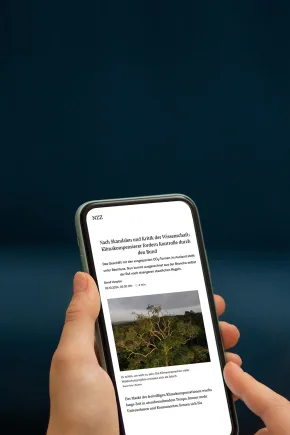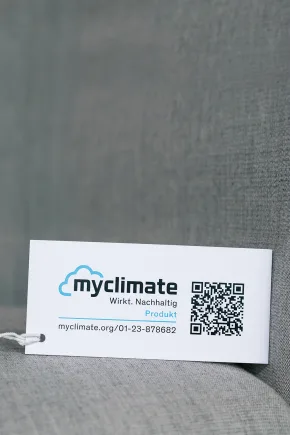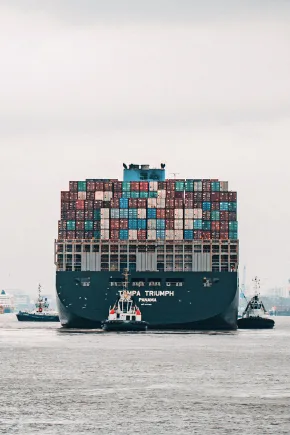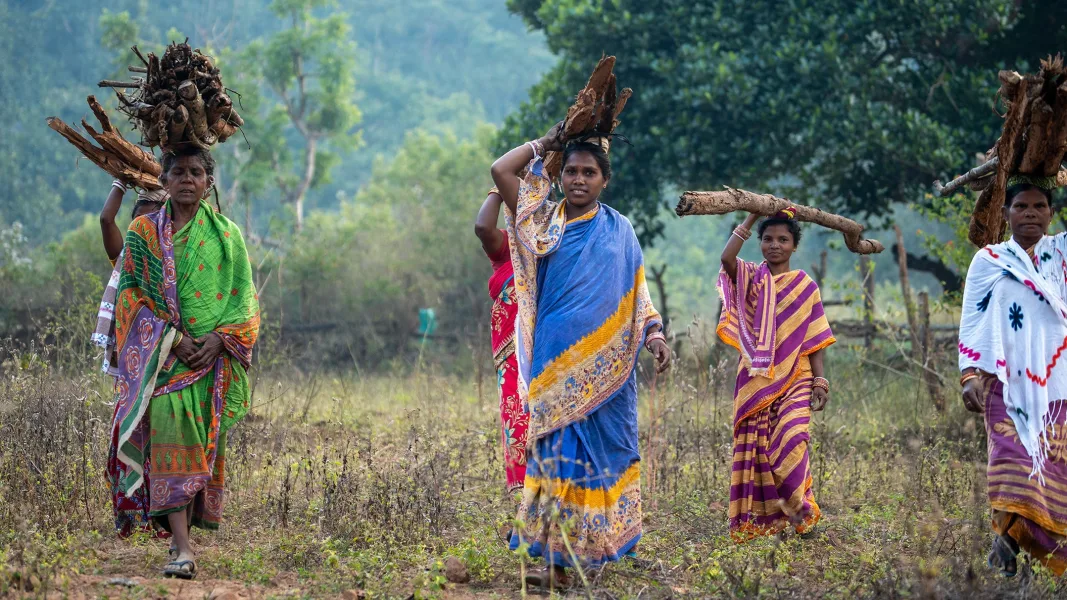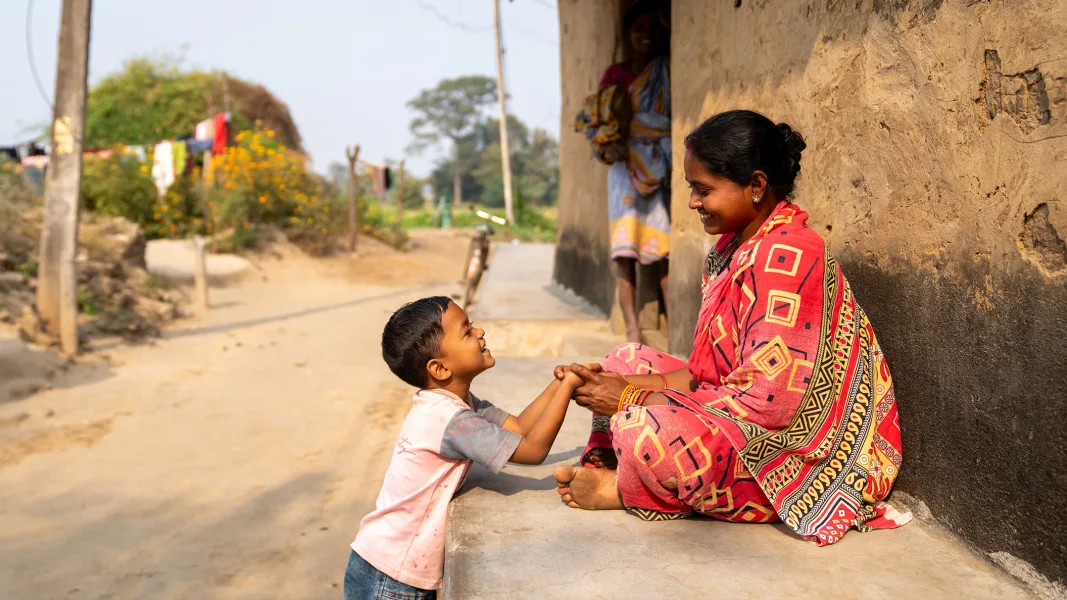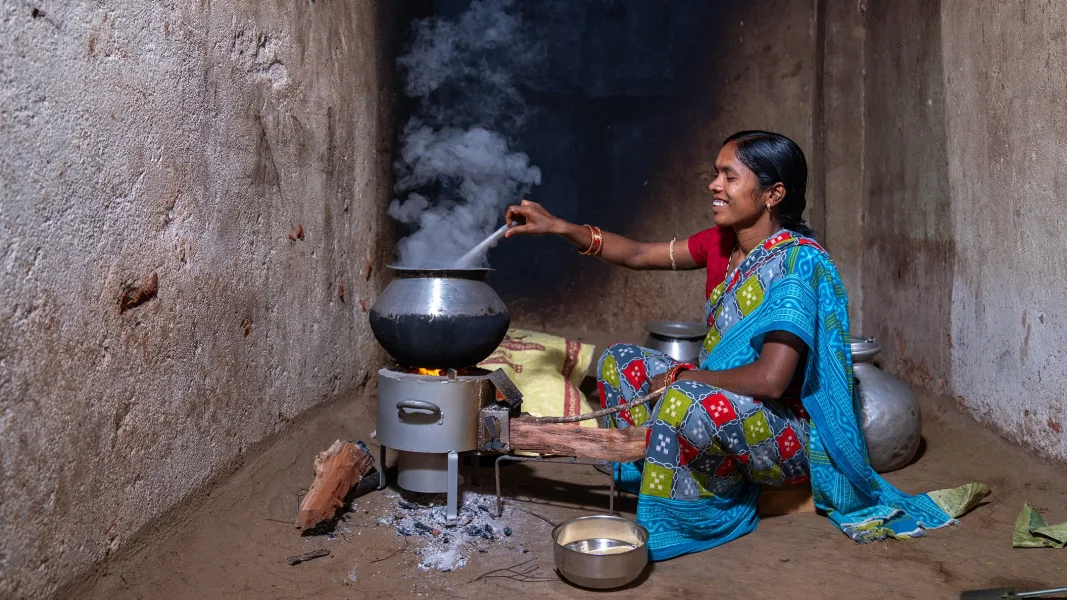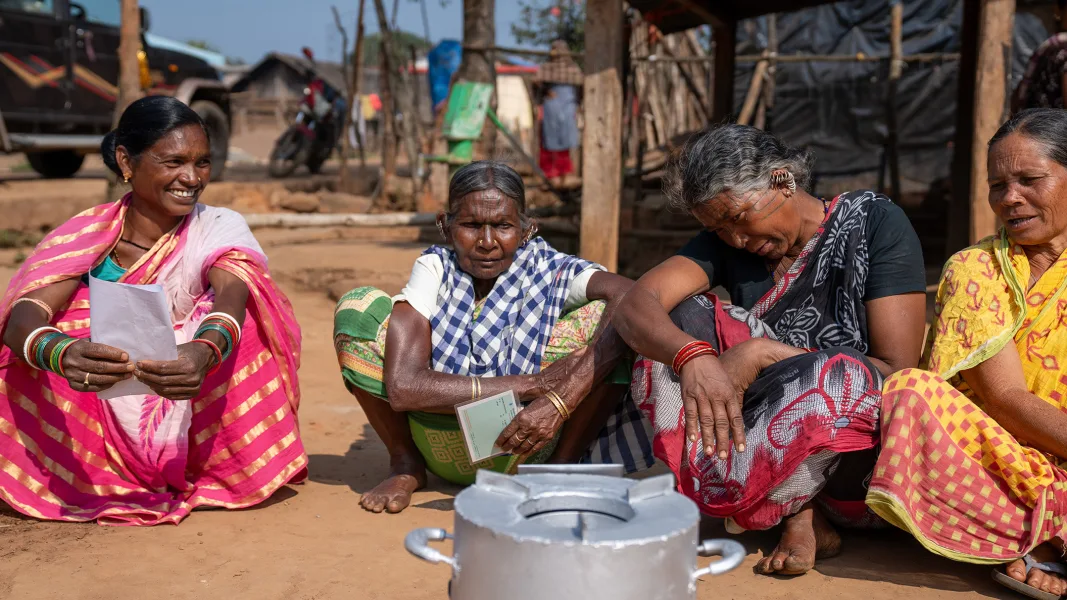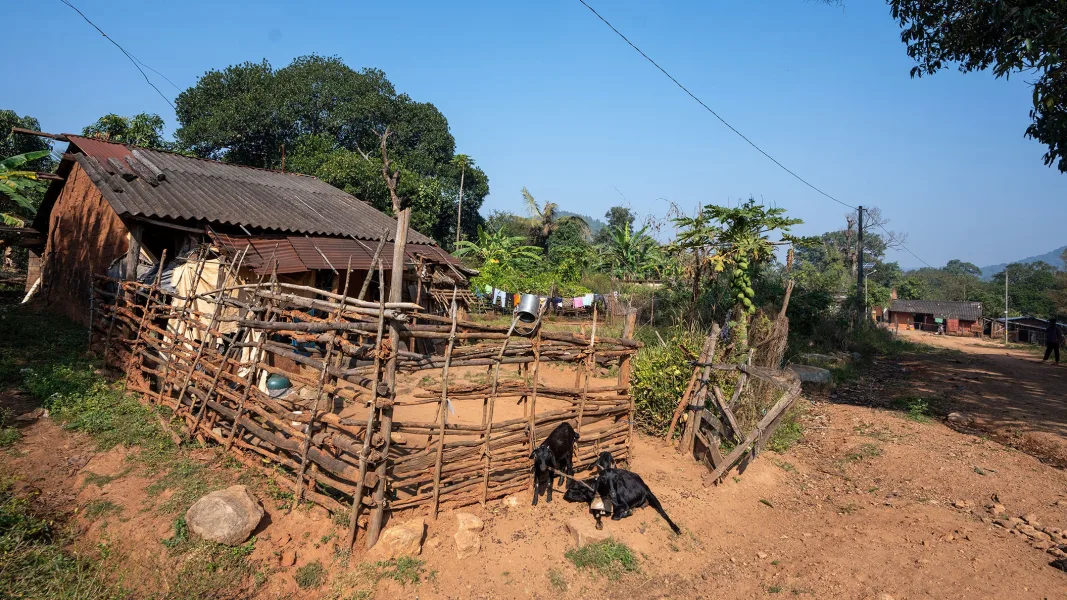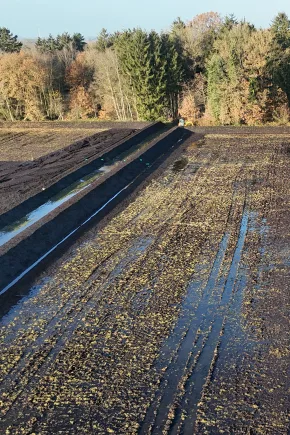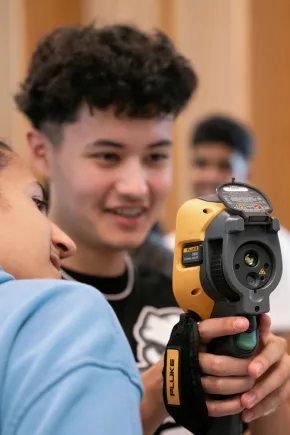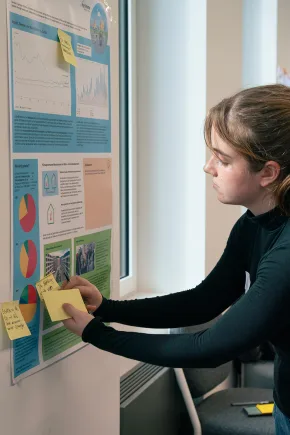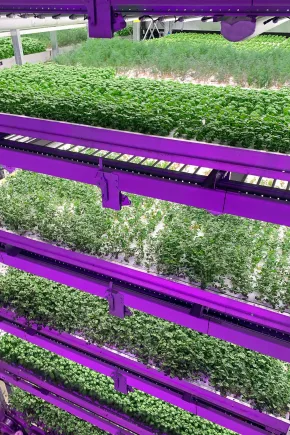Editorial
Invest in the future.
Dear reader,
2024 was a challenging year for many, including myclimate. Despite all the turbulence, with your help we managed to achieve astonishing results for climate protection. The success stories of the past year came from various different areas. Through our education projects, for instance, we raised awareness among thousands of people, training them, inspiring them and empowering them to take action for the climate, particularly in their careers. We gave companies specific advice on their own path to net zero and how to pursue it. We expanded our project portfolio quantitatively and qualitatively, from Dornbirn, Austria, to India.
On top of that, we made a conscious decision to invest in our future viability by implementing significant internal technology and infrastructure projects over the past year. We also expanded our team. We make it our mission to identify and address issues and opportunities not as ends in themselves, but as considered yet consistent levers for greater climate and environmental impact and as a positive contribution to the global SDGs. We kept to this course and had the courage to invest even when it became clear that corporate climate protection cannot escape overall social and economic developments.
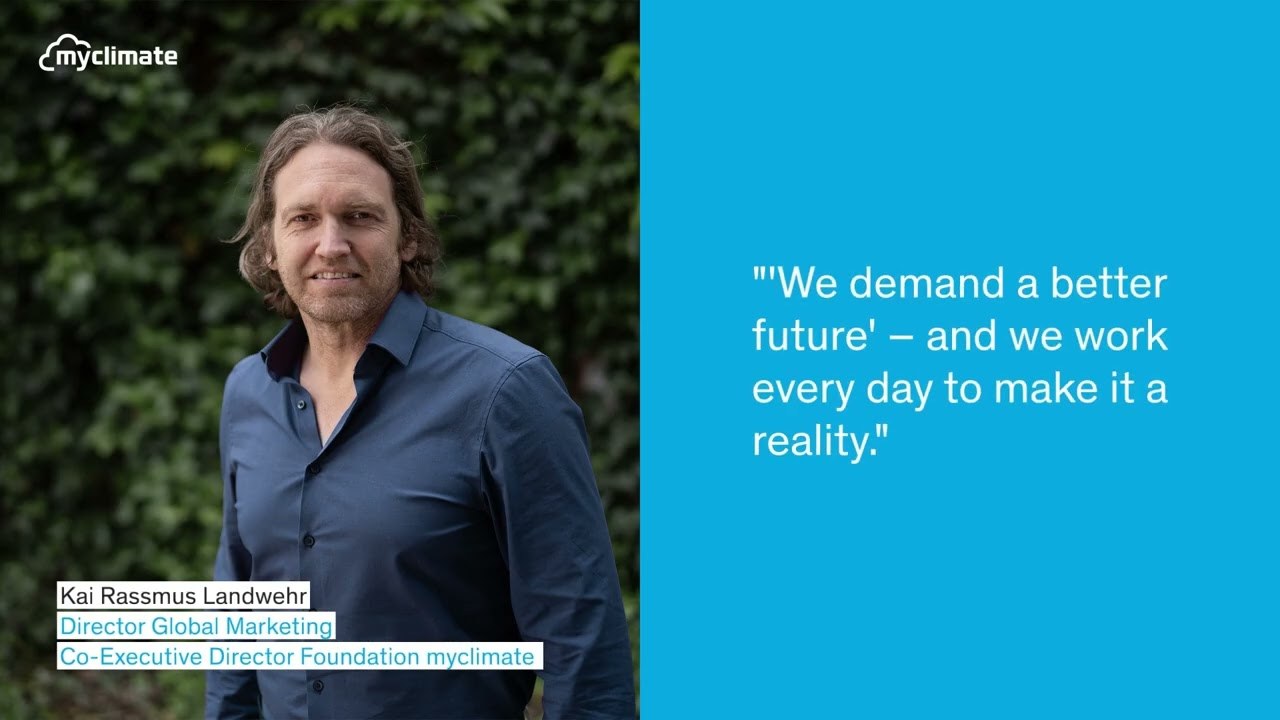
Business figures
Operating account and balance sheet
| 2024 | 2023 | |
|---|---|---|
| Income | CHF | CHF |
| Donations and income from contributions to climate protection | 47’862’099 | 50’801’176 |
| Income from Consulting and Solutions services | 3’736’841 | 3’117’800 |
| Donations and income from Climate Education services | 1’750’919 | 1’736’618 |
| Other income | 2’319’218 | 1’837’046 |
| TOTAL INCOME | 55’669’077 | 57’492’640 |
| Expenses | ||
| Expenses for climate protection projects | -35’204’684 | -31’867’591 |
| Expenses for Consulting and Solutions | -2’460’484 | -1’970’710 |
| Expenses for Climate Education | -2’177’125 | -1’858’903 |
| Other expenses for service provision | -576’598 | -763’820 |
| Total expenses for service provision | -40’418’891 | -36’461’024 |
| Total expenses for sales, marketing & administration | -11’594’688 | -10’387’169 |
| OPERATING RESULT | 3’655’498 | 10’644’448 |
| Total financial result | 2’010’182 | 164’107 |
| Total other result | 50’034 | 126’355 |
| RESULT BEFORE CHANGE IN FUND CAPITAL | 5’715’714 | 10’934’910 |
| Withdrawals from climate protection projects fund | 35’034’714 | 31’597’339 |
| Deposits in funds for climate protection projects | -42’841’448 | -42’185’282 |
| TOTAL CHANGE IN FUND CAPITAL | -7’806’734 | -10’587’942 |
| ANNUAL RESULT (Before allocation to organizational capital) | -2’091’019 | 346’968 |
| Result after allocations | 0 | 0 |
| 31.12.24 | 31.12.23 Restated* | |
| ASSETS | CHF | CHF |
| Current assets | ||
| Cash and cash equivalents | 16’912’334 | 8’147’253 |
| Accounts receivable from deliveries and services | 18’778’947 | 34’615’815 |
| Inventories and uninvoiced services | 33’167’136 | 28’946’939 |
| Accrued income and prepaid expenses | 7’412’623 | 5’871’668 |
| Total current assets | 76’271’040 | 77’581’675 |
| Financial assets | 16’147’367 | 15’057’592 |
| Property, equipment and intangible assets | 2’489’735 | 1’456’917 |
| Shareholdings | 42’000 | 42’000 |
| Total fixed assets | 18’679’102 | 16’556’508 |
| TOTAL ASSETS | 94’950’142 | 94’138’183 |
| LIABILITIES | ||
| Liabilities from deliveries and services | 4’152’909 | 5’491’010 |
| Accrued expenses and deferred income | 25’763’287 | 29’486’364 |
| Total current liabilities | 29’916’196 | 34’977’374 |
| Total Fund Capital | 60’160’448 | 52’353’715 |
| Total organisational capital | 4’873’498 | 6’807’094 |
| TOTAL LIABILITIES | 94’950’142 | 94’138’182 |
| *As part of a restatement, the balance sheet was adjusted retrospectively as at January 1, 2023: CO₂ certificates worth CHF 24.6 million were capitalized and allocated to the climate protection fund, and adjustments were made to the accrual of sales and costs. These measures increase balance sheet transparency without affecting the operating statement or organizational capital. If you would like more details, we recommend that you take a look at our consolidated financial statements. | ||
General
SDG impact reporting
Climate protection: more than just carbon reduction
myclimate has developed and supported about 210 climate protection projects in 48 countries around the world since its foundation in 2002. myclimate’s climate protection projects not only avoid or sequester CO₂, they also contribute to achievement of the United Nations Sustainable Development Goals (SDGs). We measure this impact and present it transparently using key figures. To date, more than 11.5 million people have benefited from the measures, and more than 320,000 people have been trained in climate protection projects. The following figures show the key areas of impact from this reporting from 2002 to the end of 2024.
26,500
smallhold farming families use improved farming methods
86,122
biogas plants installed, improving the health of women and children
3.1 billion
litres of clean drinking water treated
1.47 million
solar panels and efficient stoves installed, replacing fossil energy sources
11,100
permanent and temporary jobs created
22.7 million
tonnes of CO₂ saved in myclimate climate protection projects
6.2 million
trees planted, providing income for families of smallholder farmers
Carbon management
The myclimate EcoCloud goes live
We spent two years developing the new carbon management platform myclimate EcoCloud in collaboration with our two experienced partners myssion consulting gmbh and akaryon GmbH. Combined with our years of expertise in climate protection consulting, myclimate EcoCloud gives companies the right tool to record and manage their environmental data and meet the current requirements of common reporting standards (including GHG, ISO, CSRD, ESRS, VSME). This project saw myclimate taking on the challenge of professionalising the increasingly demanding – and growing – market for carbon accounting and climate strategy consulting, and positioning itself for the future with an in-house solution flexible enough to adapt to future market requirements. At the same time, we expanded our range of advisory services to give customers comprehensive support with their sustainability strategies. Chiara Tormen, Laurin Fenchel and Dominic Meier all played major parts in development here.
“Professional carbon management requires a simple, centralised solution. Our myclimate EcoCloud offers customers an in-house platform based on our many years’ expertise in sustainability.”
Chiara Tormen, Corporate Partnerships Manager & Product Owner, myclimate EcoCloud
Climate protection projects
Making an impact.
More than 210 climate protection projects worldwide
myclimate has developed and supported more than 210 projects in 48 countries around the world since it was established in 2002. Some of them are already complete. These projects cover the 14 technology areas of waste management, compost, biogas, biomass, efficient stoves, energy efficiency, land use, biochar, forestry, solar, transport, wind, water (purifying and saving) and hydropower, and contribute to the SDGs. In addition to projects for voluntary carbon markets (VCM), myclimate also develops projects for mandatory markets – including projects in accordance with Article 6.2 of the Paris Agreement – and company-specific projects (customised projects). myclimate also runs many climate protection projects in German-speaking countries. For example, 2024 saw the first Austrian project, in the town of Dornbirn, while a new moorland project in the German state of Mecklenburg-Vorpommern with the enchanting name of “Märchenwiese” (Fairy Meadow) was added to the portfolio. Further afield, a new stove project was developed in the Indian state of Odisha (more on all three projects later).
Climate financing
Why we need voluntary carbon markets now more than ever
Climate financing – it’s an issue that receives plenty of attention, and not all of it positive. This debate is useful and we appreciate it when our partners from different industries engage with the issue seriously. In an interview with “Suston Magazine”, which focuses on outdoor brands and related topics, we took a close look at these questions. Gabriel Arthur from “Suston Magazine” took the time to reflect on this issue with us. We discussed common misunderstandings about support of climate protection projects, the evolution of terms such as “carbon-neutral” and “net zero”, and the meaning of transparency and quality in the context of climate protection projects.
Gabriel Arthur: On Myclimate’s website, you list nearly 50 Frequently Asked Questions. Which would you say are the top most common misconceptions about carbon offsetting – and what are your answers?
Kai Landwehr: One is actually the terminology. Today, we talk more about voluntary carbon markets and climate protection beyond the value chain, than carbon offsetting. But the main misconception is that companies that use such solutions are indulgent and continue their “bad” business-as-usual approach behind the scenes.
From our customer base and from recent scientific studies we know that this conception is simply not true. These companies spend much effort and money on internal greenhouse gas reduction and avoidance strategies. Financing effective climate projects usually comes on top of that.
(…)
International project
Women’s self-help groups enable efficient cook stoves in Odisha, India
This climate protection project involves the installation and maintenance of optimised cook stoves for private households in rural areas of the state of Odisha. The stoves enable better combustion and thus reduce wood consumption for cooking, CO₂ emissions, indoor air pollution and deforestation. This project focuses on women and aims to support them by exploring the connections between women, the environment and the economy.
Education
Step by step towards a great future
> 3,060
students took part
> 2,030
apprentices actively engaged with climate protection
> 330
educational initiatives (workshops, training courses) were carried out
> 250
projects were developed at all educational levels
*These figures refer to 2024 and Switzerland.
Vocational training
Climate protection in the overall vocational training system
Every profession offers opportunities for contributing to climate protection. The myclimate “Skills for Future” team develops courses for specific occupational groups – construction industry workers, for instance. Apprentices gain an understanding for how their work relates to the net-zero target and are empowered to make an active contribution to emissions reduction.
We also provide effective, solution-oriented training to vocational education and training staff. The learning materials for this training can be integrated into existing teaching resources in the respective industries. This boosts sustainability skills in a wide range of professions in the long term, even without our direct intervention – and systematically embeds them in vocational training.
“The Belimo Climate Foundation and myclimate share a common view of the urgent need to educate and empower future decision-makers in the construction industry on sustainability issues. The awareness of climate issues that the project creates (…) fits in perfectly with our foundation’s purpose.”
Reto Wälchli, Managing Director, Belimo Climate Foundation
Secondary schools (Volksschule and Gymnasium)
Psychology for change: how we bridge the gap between knowledge and action
What skills do young people need to actively shape the transformation of our society in line with the Sustainable Development Goals (SDGs)? We offer an answer to this question with the “Psychology for Change” module, part of the new innovation process. Because we are convinced that understanding how decisions are made and the psychological factors behind them can help us all act more consciously and sustainably.
Engagement with climate change and climate protection in the school context frequently focuses on causes and consequences. The information about solutions and possible courses of action is often superficial. In the “Psychology for Change” module, pupils gain a vivid insight into the psychological mechanisms that influence our actions and get to reflect on their own values and scope for action in climate protection. They recognise social norms and behavioural patterns, identify their own moral dilemmas and learn to consciously address them. The workshops promotes value-driven, considered action and climate-friendly behaviour through expertise, a solution-oriented approach and interactive methods.
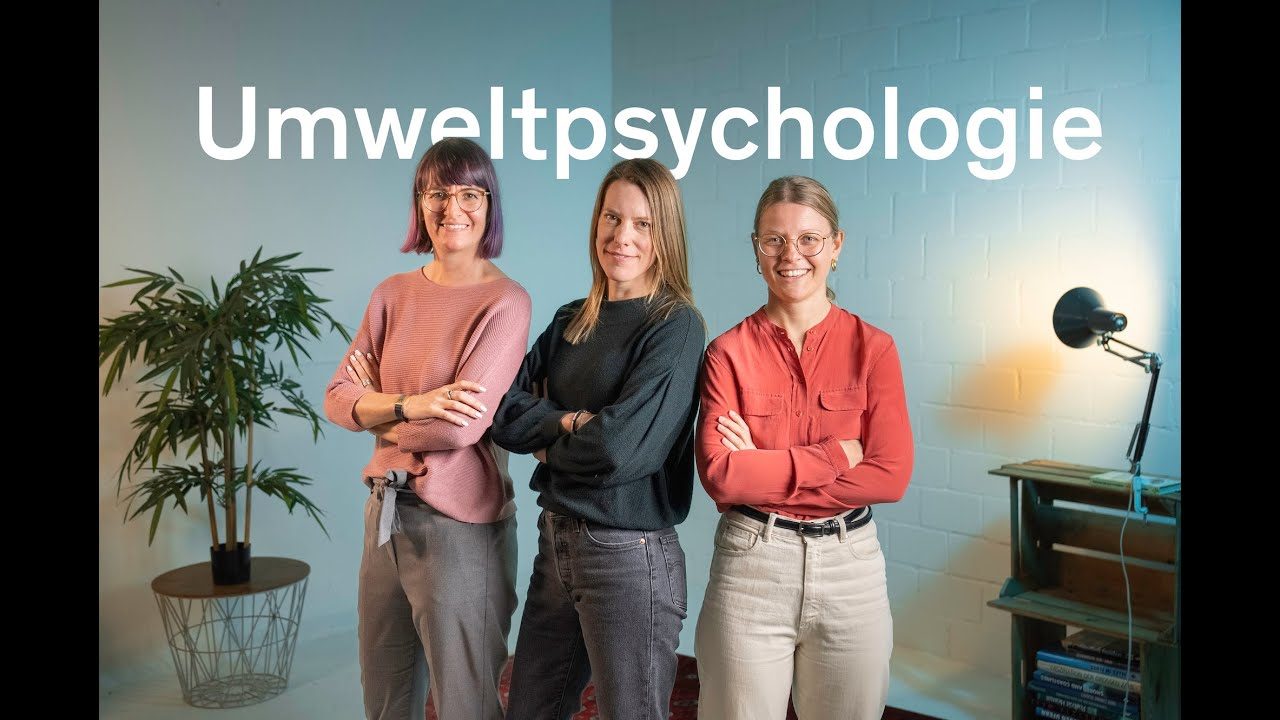
CO2 management
Digital solution
myclimate “Cause We Care”: now digital – and now also in Germany and Austria
2024 marked a milestone for “Cause We Care”. The launch of this digital platform makes our programme for climate protection and sustainability in tourism and the events industry more straightforward and effective than ever before. We have also successfully expanded the platform to Germany and Austria.
The double-impact principle remains a winner: guests make a climate protection contribution which companies match – thus financing global climate protection projects and the company’s own measurable sustainability efforts. The new platform provides support with carbon footprint calculations, action planning, communication and training – all at a glance, all in one place.
“The opportunity for guests to make a voluntary contribution to myclimate climate protection projects is an important element of our sustainability strategy. Two-thirds of our guests have already done so in 2023, thus publicly striking a chord with the times.”
René Dobler, CEO Swiss Foundation for Social Tourism
EU regulations
CSRD and VSME more relevant than ever for competitive advantage
In mid-2024, Dr Katharina Reuter, Managing Director of the German Association for Sustainable Business, offered some advice at a myclimate Cloud Talk that couldn’t be more topical today: even if you don’t have (or no longer have) a reporting obligation, it is a route you should definitely take nonetheless. All companies will need standardised sustainability data – for insurance companies and credit institutions that request data on climate risks, for instance. Or for new and existing B2B relationships with large companies that require certain data as a prerequisite. Standards such as VSME, ESRS and GRI provide an effective framework and boost your competitive advantage in Switzerland, the European Union and beyond.
In 2024, the discussions were characterised by the area of mandatory non-financial reporting for companies, and this has now taken a final turn towards fewer obligations with the European Union's omnibus regulation. In the myclimate Cloud Talk, Dr Katharina Reuter, Managing Director of the German Association for Sustainable Business, offered some advice that could not be more relevant today: Regardless of whether they are required to report or not, all companies will need standardised sustainability data – for insurance companies and credit institutions that request data on climate risks. Or for new and existing B2B relationships with large companies that require certain data as a prerequisite. Standards such as VSME, ESRS and GRI provide an effective framework and boost your competitive advantage in Switzerland, the European Union and beyond. myclimate has monitored all developments and can advise you on the necessary steps to take.
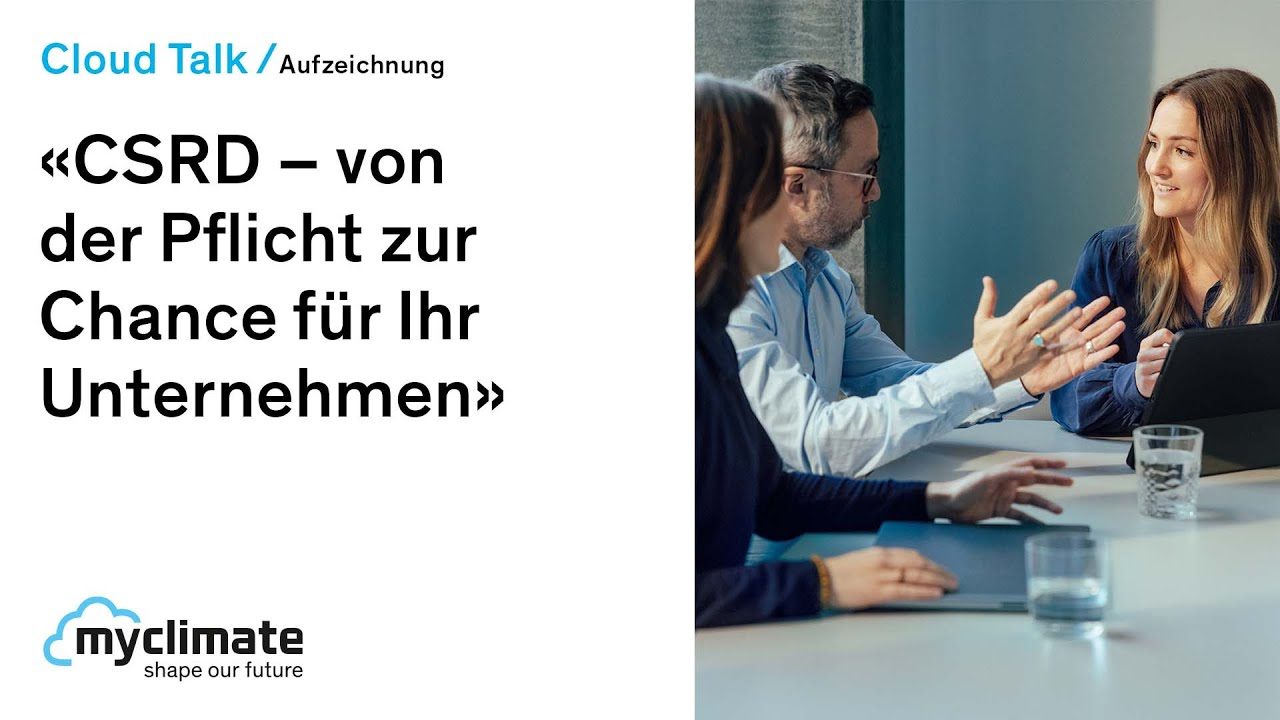
Success stories
“myclimate was strong in specialist knowledge, pragmatic and supportive. They guided us through the jungle of specifications, supported us in calculating a carbon footprint, and helped to structure the reporting process.”
Jan Bärwalde, Head of Corporate Communications and Sustainability Officer at BVZ Holding AG
myclimate at events
Trade fairs
myclimate awards at the ITB
myclimate presented the coveted myclimate Awards to pioneering companies and organisations from the industry at the International Tourism Exchange in Berlin (ITB) in 2024. Winners included the Twerenbold Reisen Group and Lucerne University of Applied Sciences and Arts from Switzerland as well as the GreenSign Institute from Germany. Before the award ceremony, myclimate organised a panel discussion on the current status of climate protection projects and how to avoid “greenwashing”. myclimate presented its progress on the further development of the myclimate “Cause We Care” product at the ITB trade fair stand.
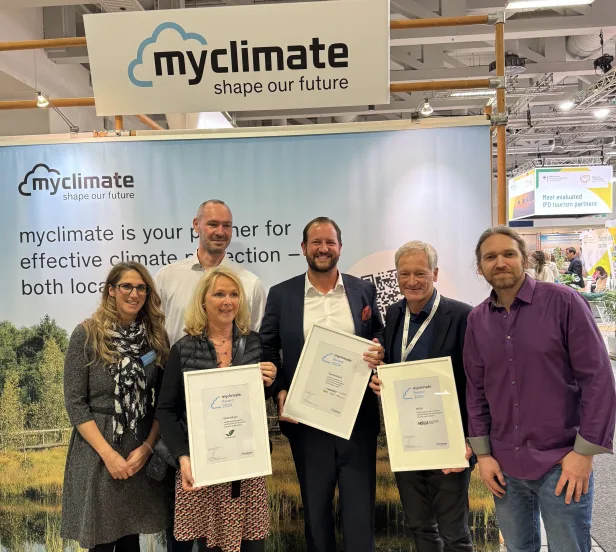
Responsible production
For a clean future: hollu calculates product carbon footprint with the myclimate Smart PCF
Hollu Systemhygiene GmbH is one of Austria’s leading providers of cleaning and hygiene solutions. To make the environmental impact of its wide range of products visible, the family-owned company relies on the myclimate Smart PCF. They used the AI-based tool to calculate the product carbon footprint (PCF) of almost all their cleaning and care products. The results serve as a basis for more sustainable product decisions – in the development of environmentally friendly formulas, for instance. Along with product development, hollu brings climate awareness to other areas as well, with an electric company fleet, its own photovoltaic installation, a focus on regional supply chains and an electrified production site in Zirl.
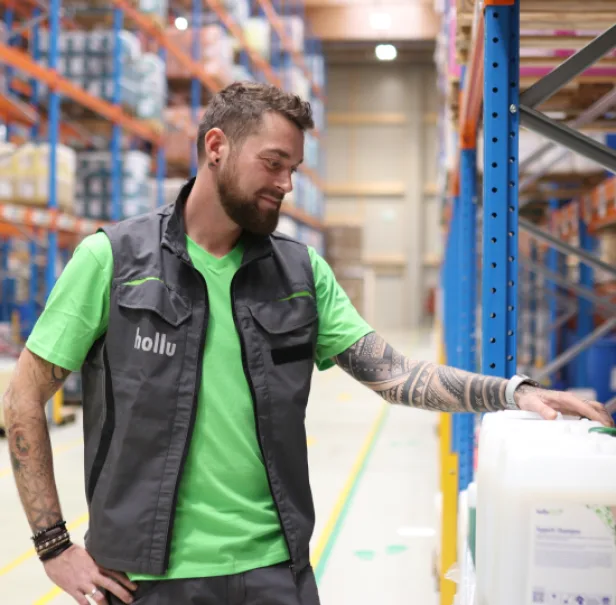
Climate Conference 2024 COP29
Perspectives and impact on climate protection – an outline
In our view, the 29th World Climate Conference in Baku (Azerbaijan) in 2024 was characterised by two different focal points representing two opposing dynamics. Positive momentum was evident from day one in the area of market-based climate protection mechanisms. Unfortunately, there were few surprises in the discussion about financing transformation and adaptation measures for countries of the Global South, which dominated headlines and resulted in 30 hours of “extra time”. We outline the 29th Conference of the Parties in Baku in the link below.
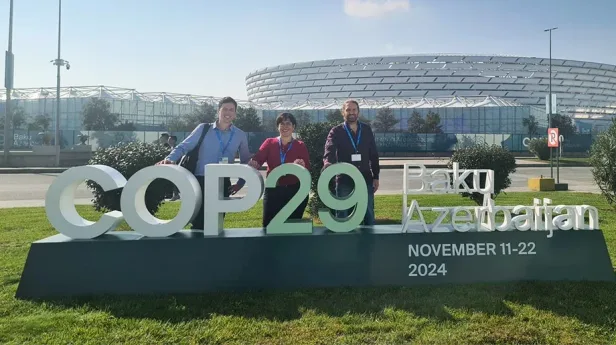
Note on the photo in the header image:
The photo used was taken in summer 2024 by Sebastian Eppler during a joint hike with myclimate colleagues. It shows the Oberbauenstock (also called Baberg by locals), a peak in the Uri Alps on the border between the cantons of Nidwalden and Uri in Switzerland.


